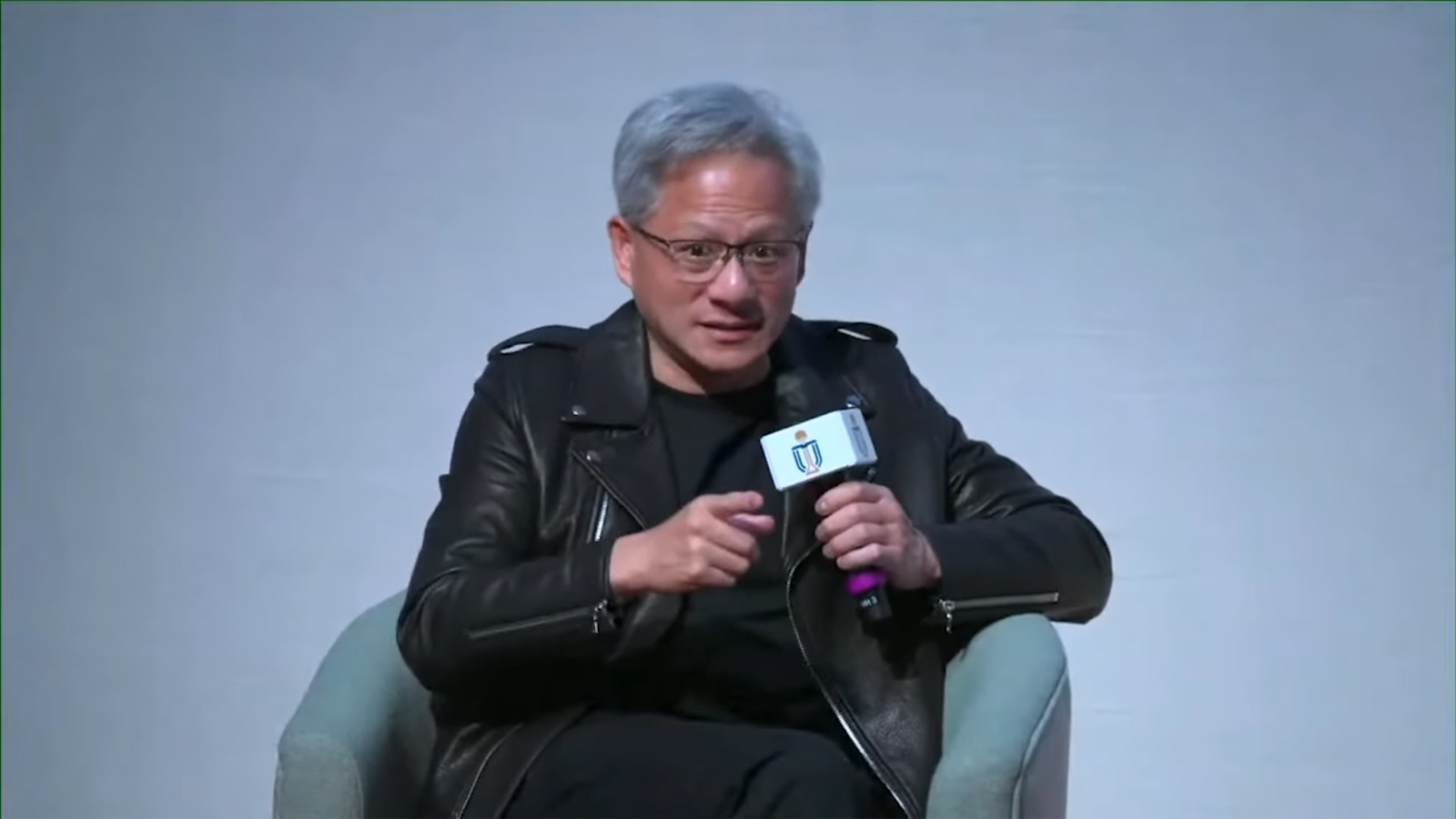
Nvidia CEO Jensen Huang recently said he doesn't think the industry can solve the AI hallucination issue, wherein an AI makes up information to fill in its knowledge gaps, for several more years. Huang also outlined how he had wooed his wife by promising he would be a CEO by the age of 30. Huang discussed these and other topics, like how much computing needs increased in the past 10 years, during an interview at the Hong Kong University of Science and Technology.
The host said the demand for AI computing power jumps four times annually. “In 10 years, it’s [an] enormous number, actually a million.” He also added that’s why Nvidia’s stock went up 300x. “The computing needs are a million times more, so then it explains the stock probably is not that expensive.” He then asked Huang, “As you look into the future with your crystal ball, are we going to see that a million times more needs increase for the next 10 years?”
Huang did not give a direct answer, but he first explained how artificial intelligence is being developed today. The first area is pre-training, which the Nvidia CEO compared to going to college. Here, the AI takes in all the data in the world and discovers knowledge through it. Huang says this is a “very important milestone, but it’s not enough.” The second area in the AI development process is post-training, where it dives deep into a particular skill via “reinforcement learning [through] human feedback, reinforcement learning [through] AI feedback, synthetic data generation, multipath learning, reinforcement learning [sic]—there’s a whole bunch of techniques.”
Finally, the third area of AI development is Test Time Scaling, which he also referred to as “thinking.” This is much more complicated, as the AI now breaks the problem down step by step to find a solution. It might have to iterate and sometimes simulate various outcomes, especially if the answer is not predictive. He says, “We call that thinking, and the longer you think, maybe the higher quality the answer would become.”
But despite all these areas of development, Huang says that we still can’t fully trust the best answers that AI can deliver. “Today, the answers that we have are the best that we can, but we need to get to a point where the answer that you get is not the best that we can provide, and somewhat you still have to decide whether is this hallucinated or not hallucinated, does this make sense, is it sensible or not sensible? We have to get to a point where the answer that you get, you largely trust.” He also added, “I think that we’re several years away from being able to do that, and in the meantime, we have to keep increasing our computation.”
Despite this, he also pointed out what Nvidia has done for AI, “What Nvidia has contributed is that we’ve taken the marginal cost of computing and reduced it by a million times.” He said, “When the cost of something reduces by a million times, your habits fundamentally change…that is the single greatest contribution Nvidia ever made, that we made it so that using a machine to learn exhaustively an enormous amount of data is something that researchers wouldn’t even think twice to do. That’s why machine learning has taken off.”
When someone pointed out that Nvidia’s AI GPUs are still expensive, Huang said that it’d be a million times more expensive if Nvidia didn’t exist. “I gave you a million times discount in the last 10 years. It’s practically free!” said Jensen.
Jensen Huang promised his wife he’ll be CEO by 30
One other interesting tidbit that came up during the interview was when they asked Huang for advice on “when and why they should start their own thing [company].” The interviewer added, “Besides, you did promise your wife Lori that by the age of 30, you will do a company,” and Huang responded, “That was my pickup line; I didn’t mean it.”
Jensen was 17 when he met his wife, Lori, who was 19 then. He was the youngest kid in his class, and there were only three women among the students. Huang said, “You have to learn how to have a good pickup line.” So, Jensen approached her and asked, “Do you want to see my homework?” She eventually agreed since he promised that if she did homework with him every Sunday, she’d get straight As—resulting in a weekly Sunday date for Huang.
“Just to make sure that eventually she marries me, I told her that by the time I’m 30, I just wanted you [to] know I’m only 20 right now. But by the time I’m 30, I’m going to be a CEO—I have no idea what I was talking about—and then we got married.” Jensen said. “That’s all the advice I’m going to give all the entrepreneurs. That’s it.”







